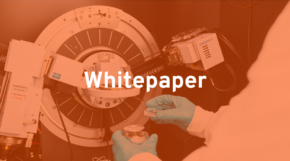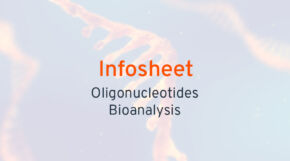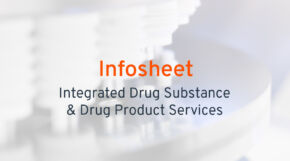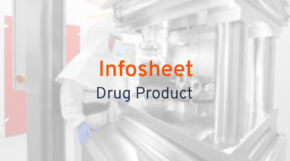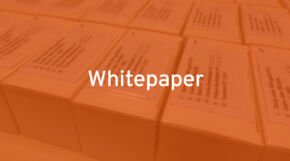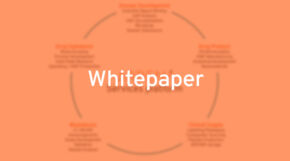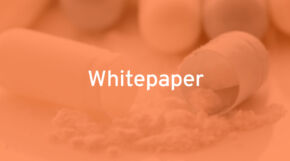- Services
- Our services
-
Drug Substance
Process development, analytical development, analysis, stability testing, manufacturing
-
Solid State Research
Crystal structure by X-ray, solid form screening, solid form selection, IP support
-
Drug Product
Formulation development, analytical development, manufacturing, stability studies
-
Clinical Supply
Packaging, labeling, clinical trial logistics
-
Bioanalysis
Mass spectrometry, immunochemistry, flow cytometry, in-vitro drug discovery, clinical trial services
-
CMC Regulatory Support
Scientific report writing, module 3 writing, regulatory CMC support
-
- Advanced solutions
-
Nanomedicines
Guiding your nanomedicine candidate through its journey to the clinic
-
Bioavailability Enhancement
Developing and manufacturing formulations that lead to improved bioavailability
-
High Potency & Controlled Substances
Meeting your needs from pre-clinical to small-scale commercial manufacturing
-
Oral Drugs
Bringing your oral drug to clinical trials quickly and reliably
-
Injectable Drugs
Guiding you through the development of injectable drug products to GMP standards
-
Preparative HPLC Purification
Enhancing biomolecule purity with tailored solutions for GMP-grade materials at scale
-
- Our services
- Integrated Platforms
-
Our integrated platforms
Program management
Using the right standards at the right development phase, our comprehensive program management services streamline your small molecule drug development.
Drug substance
Helping you turn your compounds that show promise into GMP-grade drug substances.
Drug product
We advance your clinical candidates through the pipeline quickly and safely with specialist drug product services.
Bioanalysis
Our bioanalytical platform supports your preclinical and clinical stages with expert testing services.
CMC regulatory services
Our comprehensive CMC regulatory services streamline preparation and submission of your registration file.
Program management
Using the right standards at the right development phase, our comprehensive program management services streamline your large molecule drug development.
Drug product
We advance your large molecule candidates through the pipeline quickly and safely with specialist drug product services.
Bioanalysis
Our bioanalytical platform supports your large molecule drugs through preclinical and clinical stages with expert testing services.
CMC regulatory services
Our comprehensive CMC regulatory services streamline the preparation and submission of the regulatory files for your large molecule drug.
Program management
Using the right standards at the right development phase, our comprehensive program management services streamline your nanomedicine drug development.
Drug product
We turn your nanomedicine candidates into suitable drugs with specialist development and manufacturing services.
Bioanalysis
Our bioanalytical platform supports your preclinical and clinical stages with expert testing services.
CMC regulatory services
Our comprehensive CMC regulatory services streamline the preparation and submission of the regulatory files for your nanomedicines.
-
- Resources
- About us
- About us
-
Mission and Vision
Always agile, we reliably guide you and your molecule through the challenging terrain of early phase development
-
Facilities
Carefully engineered to support and enable early phase development for our partners’ oral drugs, injectables and nanomedicines
-
Leadership team
Our leadership team has a deep scientific understanding combined with exceptional experience
-
History
Platforms and facilities that are uniquely engineered to support and enable integrated early phase development
-
Working at Ardena
We’re a fast-growing EU-based company with many opportunities for you to grow and progress with us
-
- About us
- Contact

